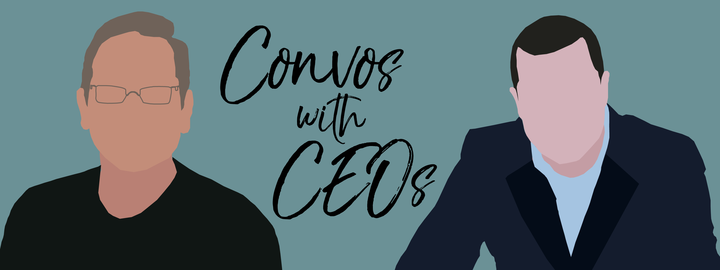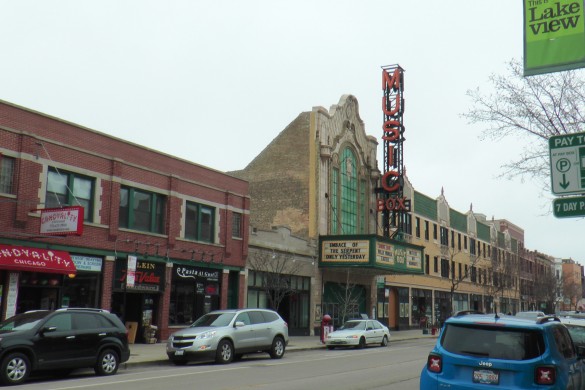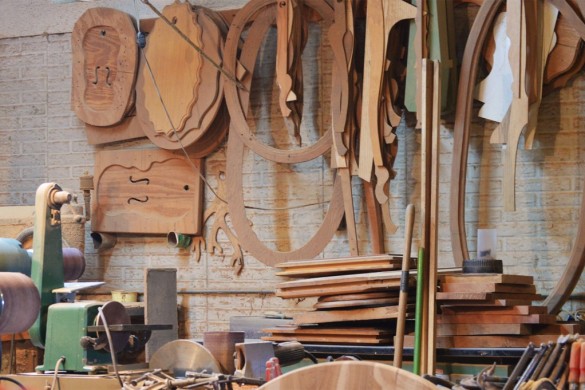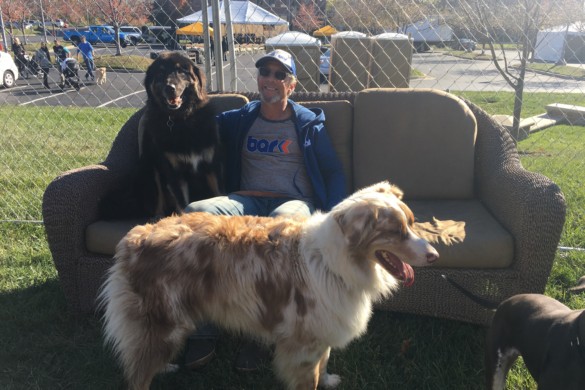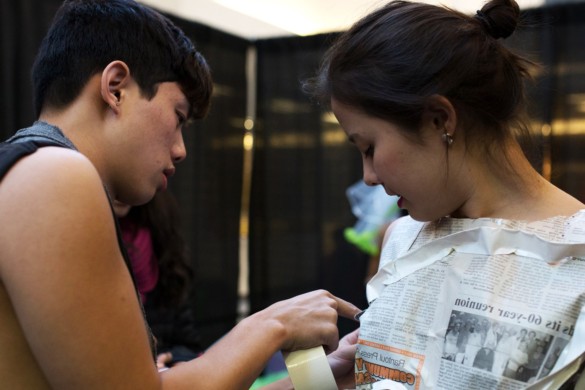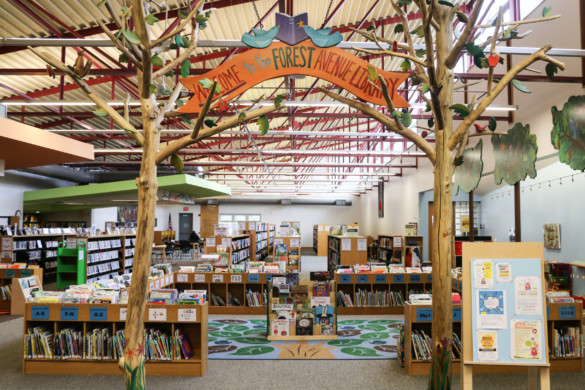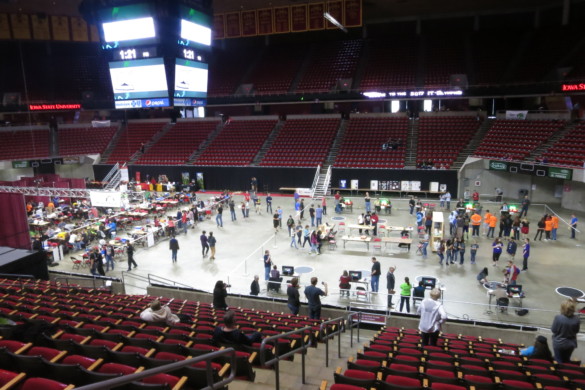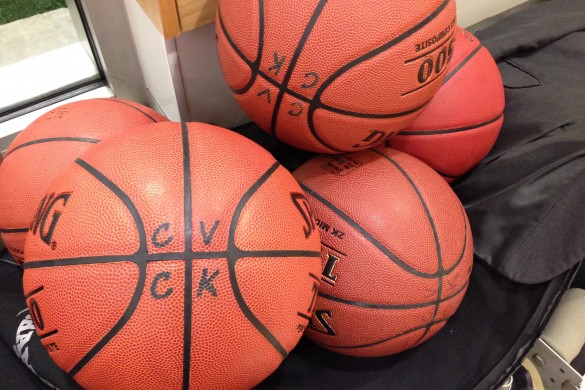Two Minneapolis-based CEO’s give their thoughts growth, innovation and early career advice
Words and Graphics by Shelbie Malinski
Minneapolis is a hub for cultural and economic growth. It’s home to multiple award winning restaurants, a thriving music scene, and a wide array of outdoor activities. In addition, Minneapolis also holds the fifth highest concentration of Fortune 500 companies. Among these, are Campus Media Group and The Nerdery, two cutting edge companies.
Campus Media Group is a marketing and advertising company founded in 2002 that works to bridge the gap between international companies, college and high school students, and young adults. They specialize in on- and off-campus advertising, digital advertising and guerilla marketing. Some of their services include media planning, buying and youth marketing initiatives. The company has been featured as one of “Minnesota’s 100 best companies to work for” by Minnesota Business Magazine in 2016 and 2017.
The Nerdery is also based in Minneapolis with offices in Chicago, Kansas City and Phoenix. The business technology consultant builds software to help businesses better serve their customers, from mobile to web apps. They are home to about 500 software engineers, user experience designers and quality assurance engineers. The Nerdery was featured in Inc. Magazine’s list of America’s fastest-growing private companies in 2015.
Urban Plains had the chance to talk with the CEOs of both companies about company growth, the future of business and marketing, and their advice for young professionals. Young professionals, about to kickstart their careers, can learn a thing or two from those who have been in similar situations and have succeeded.
Urban Plains: What do you think is the most important thing your company is doing right now?
Tom Borgerding, president and CEO of Campus Media Group: Staying focused on our client’s best interest. As a company, our core purpose is building confidence. We want to help companies grow and expand and achieve their goals and objectives.
In many cases, many companies are just putting marketing and advertising out there as noise, or because they think this young adult marketplace is a target for them. In many cases, that just makes noise, and college students are very critical of advertising and skeptical if his advertising and marketing is right for them.
We want to help companies confidently market by giving them good quality strategies and plans and executions based on their goals, while not just making noise, but actually helping create an effective program for where clients are trying to go.
Tom O’Neill, CEO of The Nerdery: The pace of change in business is increasing at an incredible rate. If you’re not able to keep up with the pace of change, then your company is not surviving. So a lot of organizations are looking to digital software in order to help with that pace of change.
The Nerdery has been proven to be good at helping business leaders take a good look at what their opportunities are to keep up with that pace of change using digital products. So I would say it’s that consulting service. We really think about the customers and how we’re serving them, then we find ways to remove friction from the customers lives and make the experience of the customer better. Helping people embrace digital as a tool to drive behavior change and business change.
How has the Campus Media grown and changed over the years?
Borgerding: In my nearly 20 years of having and running a business, it’s changed a lot. We used to be a primarily digital company and then became a digital and offline company. We did a lot of college newspaper advertisement and now college newspaper is almost nonexistent within what we do, so we’ve changed significantly around that. We’ve also changed in regards to how we define the marketplace and the media we recommend, primarily coming down to cost efficiencies and how young adults actually live their lives today in comparison to 20 years ago.
How is the Nerdery on the cutting edge of innovation?
O’Neill: I think it starts with our people. Our product is our people. We’re lucky that our brand and our values attract very passionate technologists and people who want to see the impact of their work — not just building an app, but they want to see real improvement in the organizations we help. They are just as passionate about our customer’s businesses as they are about The Nerdery.
Is there a project you’re particularly proud of?
Borgerding: Last year, we ran a campaign for a company called ASOS. They were looking to expand their U.S. presence — especially their US college preference. They hired us to develop a campus tour where we developed and wrapped a truck to drive from various campuses around the southern coasts to give out coupons and incentives and ASOS branded uniquely designed tote bags. Some of those could be completely custom-made and custom-printed on site as students wanted to design them themselves.
We set up computers, designed this whole environment where students could come in and register and take either one of eight different designed totes or they could literally custom-design their tote and we would print it on-site. So it wouldn’t only have the ASOS brand on it, but it was unique to the designer, and we even had a contest where people could vote on their favorite designed tote.
We were thinking through that whole environment and how that fits with ASOS in such a way where it actually ties together and fits together. There was a social media element and how do you get people who went to the event to promote that through their social media channels.
That was a pretty cool program for helping a brand that isn’t necessarily U.S. based to figure out how to enter the marketplace in such a way where they can make an impact and be remembered and make it fun rather than just buying ads.
O’Neill: I’m pretty darn proud of the work we’ve been doing with HyVee. HyVee is such an incredible brand, and being in Minneapolis, we’re so stoked about the growth we’re seeing here in our neighborhood.
We’ve helped them out with a lot of neat stuff lately. Specifically, we helped them relaunch their coupon, gas and pharmacy app. And the mobile experience on that app is really something we can be very proud of — we help them meet the users where they are today, instead of just the Sunday circular. They can get their rewards for using points on the app.
We have some new apps that I can’t speak of yet with HyVee in the very near future. We’ve helped them out a lot with their online properties in general. So I’m really proud of our HyVee partnership.
Where do you think marketing is headed next, and where do you think your company is headed next?
Borgerding: It’s going to continue to evolve based on how young adults live their lives. So, 15 years ago, a lot more college students picked up and read newspapers. Now that’s pretty small. If you walk around a college campus today, you’ll see students primarily doing a few things. One of them is that they’re actually in class. Secondly, they’re actually hanging out with their friends and talking with them or going through some sort of experience. So I think experiential marketing and experiential advertising will be key and it continues to be key today.
Third is digital. So again, you walk around a college campus, you see people on their cell phones, laptops, tablets to communicate and do their works and listen to music and watch videos and all that stuff. Digital and experiential are probably the biggest and most influential marketing channels that exist now to reach this marketplace. Social, obviously — social media and social media networks continue to rise and in some cases disappear — so it’ll be an evolution.
What is your advice for smaller companies looking to grow in the upcoming years?
O’Neill: The advice I’d give a smaller company is to really define a vision that you really believe in that you can align your organization around and will inspire people but also give someone a plan to focus. Then, spend the same amount of time defining and understanding your core values.
I think if you can concisely articulate your values, it makes it a lot easier to move quickly. You can base decisions off those guiding principles. You can delegate and empower people. You can know and be comfortable that what you’re doing is the right step for your company.
What are some of the benefits of being in the Midwest?
Borgerding: Aside from this beautiful weather we get six months out of the year? To me, it’s a very down-to-earth, real people type of place to work. Minneapolis has a number-one city in the country for one of the suburbs. We have more miles of bike trails in the Minneapolis/St. Paul area — I think it’s in the top five for growing — while a lot of cities are shrinking. It’s very outdoorsy. It feels very outdoorsy. It’s healthy here, at least for me.
And for me, I guess the people just seem real. And that’s not a cut on other places, but it feels less dog-eat-dog to me here than other cities. We aren’t New York, where people are trying to drive to their own goals. It seems like it’s more team-oriented, and we’re looking out for each other and the balance of life rather than a job.
O’Neill: I think the benefits of this market (Minneapolis) is we have exposure to a very vibrant technology community in general. With some of the bigger organizations here like UnitedHealth Group, Target, Medtronic, there’s a lot of really exciting things happening in general, and there’s a lot of really exciting things happening for smaller companies that are growing really fast.
There’s a lot of innovation happening with user groups, technology groups, innovation groups that our employees can be a part of to really learn about what’s happening and what’s on the cutting edge and we can take those learnings to our customers. When we’re helping our customers embrace innovation, the exposure we have in this market is really great.
I also love that we are so close to cities like Des Moines. I think that we have similar values, similar work ethic, and we’re just a quick car ride away from Des Moines where we’ve been able to establish some really great partnerships. And I’m excited to see the Des Moines technical community grow as well.
What advice do you have for people beginning their careers?
Borgerding: Most companies want to hire people who want to learn. Coming out of college, you don’t have all the answers. So when you get into a role and you’re learning what’s going on, continue to ask questions. If your plate is only 75 percent full, ask to do more. Employers want people who want to do more and who say they are ready to do more. Your boss doesn’t necessarily see that or know that, so if you’re actually coming to them saying “Hey I have some additional ideas,” or, “Have you thought about this?” or “Have you thought about that?” or “How else can I help you?” that’s huge for an employer.
O’Neill: I think that some of these younger people are not taking the time to grow themselves. They are jumping around too much. I’d say commit to your current position for a period of time that you think is going to help you learn the most you can learn from your current position before you try and move to the next step.
There’s so much you can learn from the people around you and the business you’re in and the challenges in your current position. The workforce can be so mobile these days, and that’s such a positive for some people, but I’d really like to see more people focus on the position they’re in.
What was it like to start Campus Media right out of college?
Borgerding: It was a different kind of difficult. I was an entrepreneurship major along with a marketing and advertising major. I had no idea what I was getting myself into, and most entrepreneurs at that age would say that they didn’t know what they were doing. I was very naïve, which is probably why it worked, because if I would have gone in knowing what I know now, I probably wouldn’t have done what I did.
What took me a while to understand was that I needed people smarter than me — more experienced than me — to help mentor me and give me advice on how to grow and do business. Once I got over that and my own ego of “I’m running my own business,” that’s when we started seeing real growth and real opportunity for the business.
Any final words of advice?
Borgerding: Travel. Get out of your comfort zone on a regular basis. When I say that, I mean different cultures, different types of places, different areas in town, different types of food. Because when we get out of our own bubbles in life, that’s when our greatest growth, in many cases, actually happens.
O’Neill: I heard somewhere that culture is one of the most important things in business. I would agree. I think culture can really drive the success of the business. If you have a great culture that’s focused on the right things, you can grow in capability and size. You can do anything.
Culture isn’t something that you make. I believe culture is something that you curate. It’s like a garden. The time that you put in is what you add to the organization. The people you add don’t necessarily need to match the culture, but they should complement the culture and sometimes you have to pull out people who have negative impact in the culture just like pulling weeds.
On the flip side, there are people within the culture who are awesome and you need to care and position those people to grow. Culture really is like a garden. The care and feeding of it is very important if you want your company to grow as well


